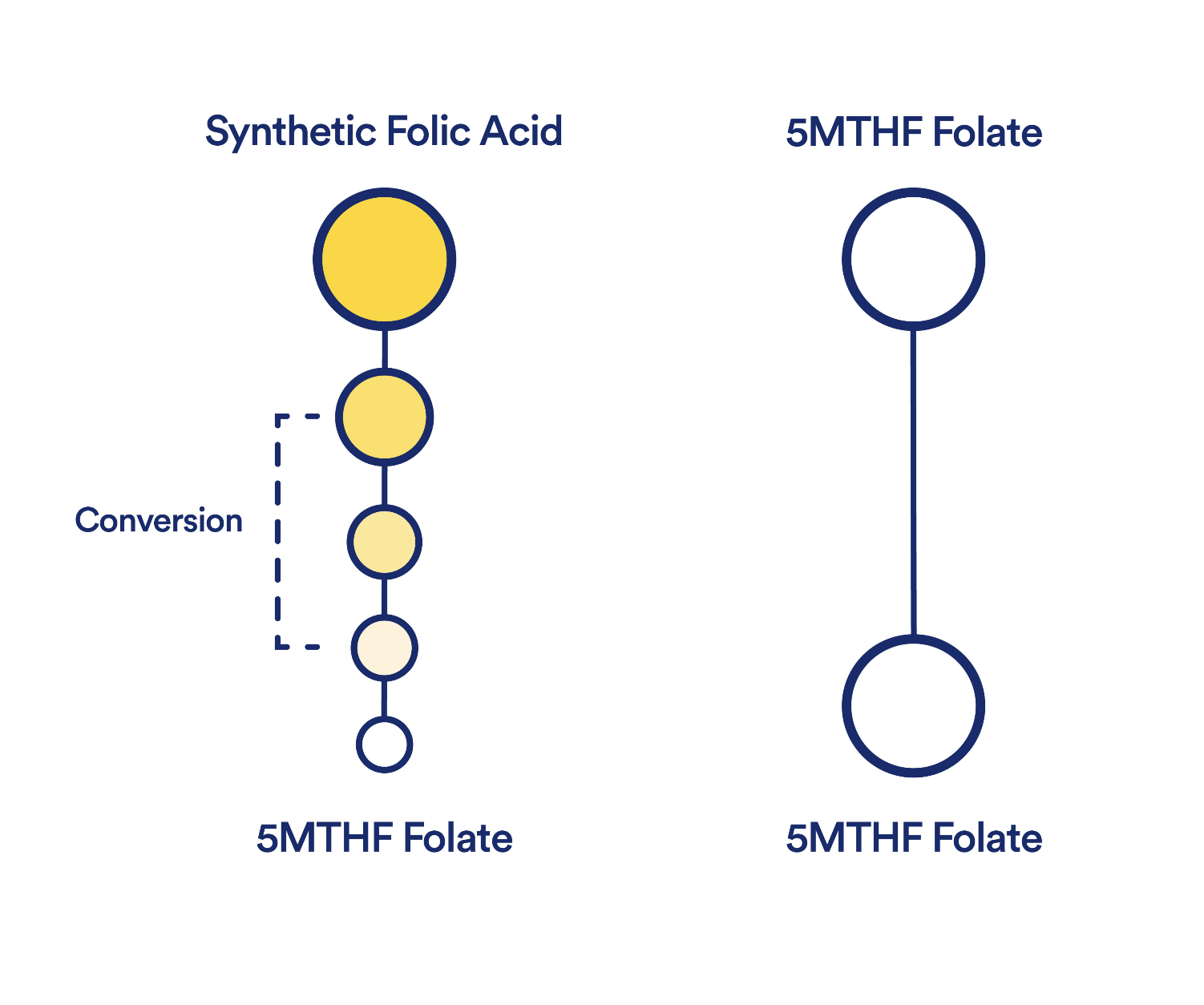Essential Takeaways
• Finding a trusted prenatal multi is important. That’s why we include folate (not folic acid) in our Essential Prenatal Multivitamin.
• Folate vs. folic acid: the difference between these two forms of vitamin B-9 can be important when it comes to what we’re putting in our bodies.*
• Why we opt for 5-MTHF, the active form of folate, in our prenatal, postnatal and our other multivitamins.*
• In a 24-week randomized, double-blind, university-led clinical trial, compared to another leading prenatal multivitamin with folic acid, our prenatal multivitamin demonstrated a more efficient utilization of folate.*†
Let’s be clear about one thing: finding a prenatal multi with folate is really important during pregnancy. In addition to supporting neural tube development for babies, it’s essential for pregnant women, too—it’s a water-soluble vitamin known to be involved with DNA methylation (a process related to gene expression). It also supports red blood cell formation. All in all, folate is an essential nutrient that is important to look for in a prenatal multivitamin.*
Notice how we’re emphasizing folate rather than folic acid? That’s because folic acid is a form of folate—it ultimately gets converted in the body to become the active form of folate, 5-MTHF. But while folic acid supplements get a lot of buzz as a prenatal must-have, folic acid may not be the most ideal form of folate for people with a genetic variation (MTHFR gene) that can make it difficult to efficiently utilize. And that’s why we opted for the active form of folate as 5-MTHF while formulating our Essential Prenatal, Essential Postnatal and our other multivitamins.*
Is Folate the Same As Folic Acid?
The short answer is no! Folate and folic acid are both forms of essential vitamin B9 but, folic acid is a synthetic version of folate.
Folic Acid: Folic acid is not naturally found in nature or in our body. It was introduced to our diet through fortified foods in the mandatory folic acid fortification of grain products in 1998.












